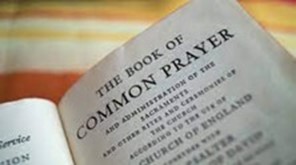We are Anglicans!
What is an Anglican? For many outside and even in the Church of England, the word conjures up pictures of beautiful historic buildings, the Vicar of Dibley, occasional religious services for life milestone marking or annual seasonal events. For some, ‘Anglicanism’ is a ‘brand’, managed by a complicated institution, connected to a place (Canterbury); usually linked to the values of the ruling establishment.
Gafcon since its inception has rejected these understandings of Anglicanism, and has emphasised instead that being Anglican is about beliefs, history and people:
• An expression of authentic Christian faith
• Shared structures of governance and forms of worship and discipleship
• A global communion of culturally diverse churches
Continuing our series on the Jerusalem Declaration, we’re looking this month at clauses 6 and 7:
We rejoice in our Anglican sacramental and liturgical heritage as an expression of the gospel, and we uphold the 1662 Book of Common Prayer as a true and authoritative standard of worship and prayer, to be translated and locally adapted for each culture.
We recognise that God has called and gifted bishops, priests and deacons in historic succession to equip all the people of God for their ministry in the world. We uphold the classic Anglican Ordinal as an authoritative standard of clerical orders.
Most of the Jerusalem Declaration focuses on affirming bible-based Christian faith shared with all true churches. Here the document sets out concisely some Anglican distinctives that have nothing to do with the familiar caricatures mentioned above!
Many Anglican evangelicals in the West, perhaps wanting to avoid any association with ritualistic religion and seeking attract a generation who might be put off by too much formality, have in recent decades kept sacraments and liturgy to a minimum. But this can lead to two-dimensional worship, missing out on the riches of the tradition. Symbols appreciated with all the senses, and the regular repetition of words crafted with poetic skill, are not an end in themselves but used rightly are “an expression of the gospel” and in fact a “means of grace” by which, with faith, we encounter the Lord himself.

The Book of Common Prayer and the Ordinal are based on patterns of worship and commissioning of church leaders which date back to the early church. Over the centuries, the gospel had become obscured, requiring the powerful theological correction of the Reformation.The rubrics and liturgies set out how we should approach God in worship and prayer, in learning from his word and receiving his body and blood, in holding leaders publicly to biblical standards in ministry. But the 1662 documents are not like the Quran, seen as having almost magical properties only if used in unchanged form. They are to be continually “translated and adapted for each culture”, always expressing the central teaching of relationship with Christ through repentance and faith, and growing as disciples together through regular feeding on word and sacrament. It is not ‘Anglican’ to repeat the words of 1662 while no longer believing in what they plainly signify and point to.
Anglicans structure their church life in a particular way, with local churches led by priests assisted by deacons, overseen by bishops responsible for regions with groups of churches. The use of the word ‘priest’ here should notdenote any kind of mystical spiritual ability, and certainly not being above correction. Christian leadership should be characterised by servanthood and humility not abuse of power or pursuit of status. Cranmer used both terms ‘priest’ and ‘Minister’; many evangelicals prefer to use the New Testament word ‘presbyter’; ‘pastor’ is increasingly being used. Hopefully, battles over whether or not to use words and symbols associated with ‘anglo-catholicism’ are a thing of the past, as faithful Anglicans unite around the gospel in the face of more serious contemporary theological threats.
Whatever name we give to those set apart to lead local congregations needs to be explained, and care needs to be taken to ensure that their origin and purpose is built into local church vision and practice. As Article 7 reminds us, those with responsibility to lead and speak in the church are a gift from God, not so they can take on the entire burden and status of caring for the flock, but to equip God’s people for ministry, in the church and as salt and light in the world.